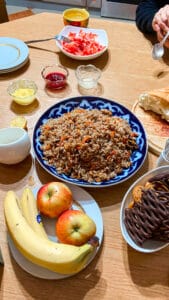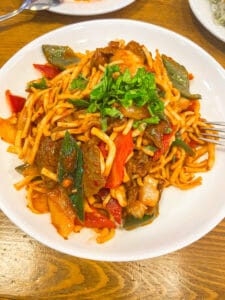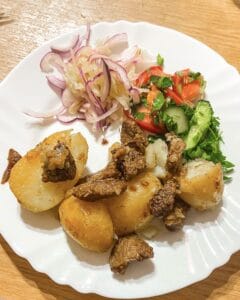Ramadan is the Muslim holy month when followers are expected to fast, not drinking or eating from sunrise to sunset. During this month, daily life is molded around the fast. Ramadan ends with Eid al-Fitr, a feast and celebration.
Kyrgyzstan is a majority Muslim nation and Ramadan and Eid al-Fitr are major parts of the Kyrgyz calendar. Thus, SRAS students in Kyrgyzstan during these events get to witness, often for the first time, the traditions of these holidays. Below are experiences that SRAS students had and would like to share with you. For more on these and other Kyrgyz holidays, see this guide on our site.
Ramadan and Eid with a Kyrgyz Family
By Maria Holderbaum (Spring, 2022)
My host family, like most families in Kyrgyzstan, are Muslims. Thus, I got the opportunity to witness and be a part of their daily lives during Ramadan.
For the month of Ramadan, practicing Muslims will fast from sunrise to sunset, refraining from any food or liquids. During this time, Muslims should also refrain from violence, anger, greed, gossiping, complaining, swearing, smoking, chewing gum and any sexual activity during daylight hours. There are a few exceptions for fasting: for young children, for pregnant, breastfeeding, or menstruating women, and for anyone who is ill or on any regular medication.
Speaking with my host family, they explained to me what Ramadan means to them and why they fast. For them, fasting is a spiritual discipline which removes all life’s distractions and allows you to focus on your relationship with God. It is a time to be thankful for the blessings you have received from God and fasting reminds you of how dependent you are on God. Another purpose of fasting is to show you what it feels like to be hungry and thirsty, this way you can have compassion for the poor and people in need. Ramadan is also a time to be with family, to enjoy each other’s company and be thankful for everything you have.
My host family consists of six people, all of whom participated in fasting except for my host grandmother, who is on regular medication and my host mother, who was ill at the time. The remaining family members would wake up before dawn (approximately 4:30am) and cook and eat their first meal of the day. They ate a lot of meat, rice, and potatoes and drank a lot of water in order to fill them up for the long day of fasting before their next meal (which would be at approximately 7:25pm). After their first meal, they would go back to sleep for a few hours before they started their workday.
In the evening, there is a call to prayer for men. This can be done at the mosque or at home. My host father and brother prayed at home.
After the evening call to prayer, they would have their second and final meal of the day, which consisted of Kyrgyz national dishes such as plov, lagman, or beshbarmak. Bread, salad, and tea were also enjoyed with every meal. After the second meal was over, my host family gathered to chat about their day, watch television, play cards, and relax together. Some days, extended family members would join for dinner, these family members were also fasting, and it was a way for them to spend time together, pray together, and enjoy each other’s company.
At the end of Ramadan, Muslims celebrate Eid al-Fitr, which means “The Festival of Breaking the Fast.” In 2022, Ramadan was from Friday, April 1, 2022, to Sunday, May 1, 2022. So, Eid al-Fitr started on the evening of May 1 and lasted for three days.
The first day of Eid in my home stay began with my host father going to the mosque for a special end-of-Ramadan prayer, and in the evening, Eid was celebrated by eating a huge dinner of plov, salad, bread, chocolates, fruit, and many pots of tea. After dinner, my host family exchanged small gifts with one another, such as chocolates, trinkets, and money, which celebrates the breaking of the fast and new beginnings.
Day two of Eid was met with extended family members and neighbors coming to the house to chat, celebrate and eat. During the course of the day, we ate lagman, salad, kuurdak, chocolates, candies, dates, cake, and more pots of tea than I can count!
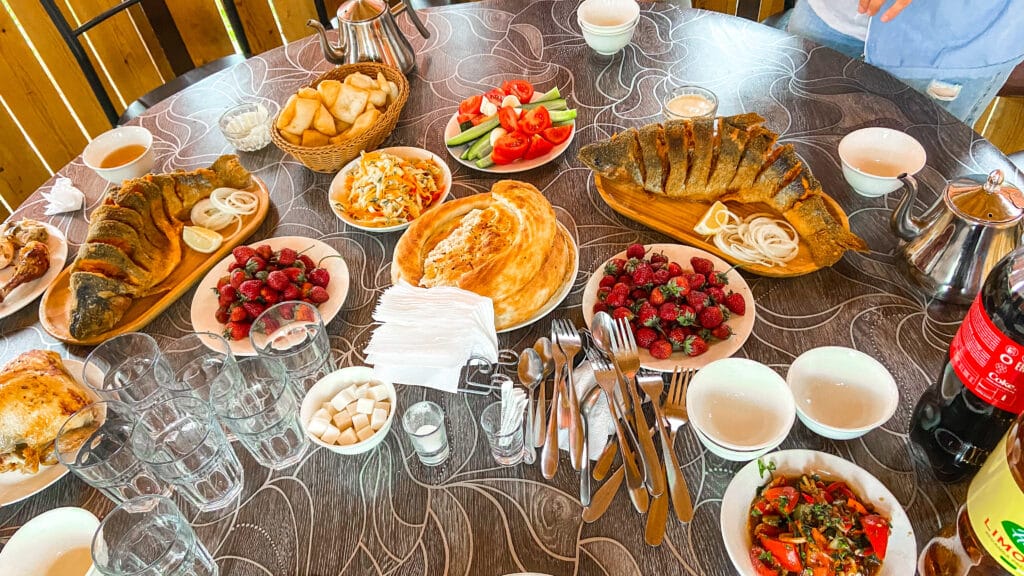
The third and final day of Eid was a special day. Because this was the last day of Eid, my host family wanted to get away and celebrate. We traveled about 30 minutes outside of Bishkek to the mountains where we rented a shelter house had an amazing picnic, filled with whole fried fish, freshly picked strawberries, salad, bread, and cake. We spent the day relaxing, chatting, exploring the mountains, and of course feasting on so much food!
As I reflect on my experience with my host family during Ramadan and Eid, I learned that most Muslims look forward to Ramadan; they enjoy the process of fasting, they gain clarity, they have more energy, and they are truly sad when Ramadan is over. As a non-Muslim and someone who has never celebrated Ramadan, I am incredibly grateful to have been able to experience Ramadan with my host family and understand what this sacred month is truly about for them.
What Bishkek Eats for Ramadan
By Eirene Busa (Summer, 2013)
Well, Bishkek, it’s the beginning of Ramadan, the Islamic month of fasting from sunrise to sunset. This year, the holy month starts July 9th, coinciding with watermelon season in Kyrgyzstan. Ramadan also coincides with the dog days of summer, when the days are at their longest, temperatures are at their highest, and beach season at the mountain lake, Issyk Kul, is at its peak. To those who are partaking in the fast this year, despite such conditions, I salute you. I have never done a sunrise-to-sunset fast before (the extent of my religious fasts as a raised Catholic involved giving up candy and eating cheese pizza on Fridays during Lent), so any sacrifice that involves not eating, drinking of any liquids, and chewing gum from 3:30am to about 9:00pm is a remarkable practice in self-discipline, self-control, and patience. All things considered, I am certain Kyrgyzstan appreciates even more this year the literal meaning of “Ramadan,” which comes from the Arabic word meaning “scorching heat” or “dryness.”
Here is a taste of what Bishkek eats for Ramadan — for breakfast, dinner, and dessert. This is by no means a comprehensive “menu,” as everyone practices according to his own culture, traditions, and beliefs, but it’s a sample based on conversations I’ve had with local practicing Muslims who were kind enough to share their experiences with me. Here’s what you might find on Bishkek’s kitchen tables for Ramadan 2013.
Early Bird Breakfast
This year, the day begins with an early bird breakfast sometime around 2:30am. It is early because sunlight breaks just around 3:30am, which is when the mufti from the local mosque sounds out his first call to prayer, called the azan. After this first azan rings out, the fasting begins. Many Muslims will set their alarms (two if they have to) in order to make this window of opportunity to store up energy for the day.
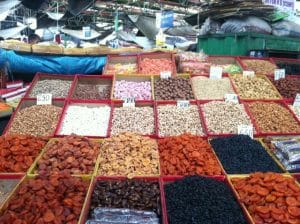
What’s for breakfast? Generally, anything that isn’t too salty, sweet, or fatty, since that only increases hunger and thirst pangs later. But it’s all a matter of personal preferences. Some people like to eat plov to maximize calories and energy. Others like to keep it light with salads and fruits, especially since it’s so early. Fortunately, Kyrgyzstan is bursting with delicious, fresh fruits right now: watermelons (they will be at their sweetest at the end of July); cherries; apricots; more than four varieties of grapes; and peaches. Oh, the peaches. Peach trees are literally raining on the sidewalks of Bishkek. (And my shoe soles are sticky from the mushy peach guts.) Dried fruits and nuts, and especially Arslanbob walnuts from the walnut grove in Jalal-Abad, are also popular. The Arslanbob walnut grove is famous for being the single largest source of walnuts on Earth.
Of course, not all produce is local. Bananas are mostly imported from China. Dates are imported from Iran, and sometimes from Dubai and Turkey. Pistachios are also imported from Iran, even though there are also Kyrgyz and Uzbek pistachios. (Iranian pistachios are just bigger and tastier.)
After breakfast, which was hopefully consumed before the first azan at 3:30am, most people go back to sleep. Time to catch a few more hours of shut-eye before work or school.
Skip Lunch
After waking up again, the hard part begins. For those who have never fasted like this before, this sounds impossible, almost Herculean. I’ve heard of stories of headaches, low blood sugar, lethargy, irritability…how does one cope? This sounds especially difficult for me because I am a grazer, constantly snacking throughout the day on something, anything, as if I’ll cease to function if my jaws stop moving. However, all the practicing Muslims I’ve talked to — those who are Kyrgyz, Uzbek, Tajik, Afghan — pooh-poohed my concerns. They all said, in one way or another, “It’s not hard. You can get used to anything.” What impresses me even more is the ability of people to cook during daylight hours while not eating. My Uzbek colleague says that when she prepares dinner and has to taste test, she simply licks the spoon, then spits it out.
Of course, fasting is more tolerable if you are healthy and strong. For this reason, the Quran exempts from the fast those who are sick, pregnant, on their menstrual cycle, too old, and too young. Girls under the age of nine, and boys under the age of 12 do not have to fast. I have also been told that napping is a good way to quickly pass time, especially during these long summer days. But that option is usually available only to those without a strict schedule.
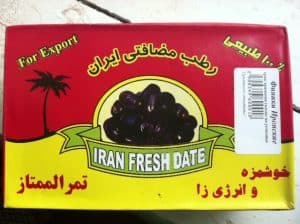
Dinner
Dinner begins around 9:00pm, or whenever the sun sets and the last azan rings out. This special Ramadan dinner is called iftar. But before iftar, Muslims break the fast with either un-carbonated water or fruits, like dates. Since it is not advisable to drink tap water in Kyrgyzstan, people will either buy un-carbonated water in the stores for 18 som (37 cents) per liter, or holy water called Zam-Zam water, for 300 som ($6.25) per liter. Zam-Zam water is water taken from the Holy Well of Zam-Zam in Mecca. The well is a major stop for Hajj pilgrims. In Bishkek, you can find Zam-Zam water at sidewalk shops near mosques, or from returning Kyrgyz Hajj pilgrims, who will bring back Zam-Zam water as souvenirs. Meanwhile, dates are a popular fruit to break the fast, not only because they were the first food the Prophet Muhammed ate after he first fasted, but because they are healthy and rich in potassium, calcium, magnesium, and carbohydrates.
Iftar can be celebrated any number of ways. Sometimes people will prepare a big dinner spread and invite their relatives and friends for an all-out feast. (The Tajiks will do this the fourth week of Ramadan.) Other times, people will cook normal foods for their immediate family, without much ceremony. What makes iftar special is mostly presentation, as if to reward both the eyes and the stomach after a long day of abstinence.
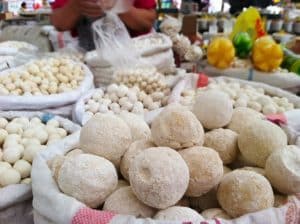
Popular Kyrgyz drinks during Ramadan are made from dried yogurt balls called kurut. While you can find kurut year-round, usually in the form of small, salty balls sold in plastic jars along the side of the road, there is special kurut during Ramadan that is unsalty and much bigger, about the size of your first. Apparently, these special Ramadan-sized kurut balls can only be found in Bishkek at Osh Bazaar. From these unsalty kurut balls, you can create sweet and salty drinks by mixing it with hot water and different ingredients. Salty kurut drinks can be prepared by dissolving the yogurt ball in hot water with onions, tomatoes, salt, and carbonated water. Sweet kurut drinks can be prepared by dissolving the yogurt ball in hot water with sugar and a local yellow creamy oil called sari mai.
Dessert
For a sweet finish, people will eat more fruits, dates, and nuts. For the Uzbek diaspora, a popular Ramadan dessert is nishalda, a sweet, foamy custard made from sugar, egg whites, and licorice root. Uzbek children also participate in a Halloween-esque tradition, where they travel from house to house and sing for candy, and sometimes toys and money. Uzbek children will do this every night during Ramadan, usually in the villages outside of Bishkek.
Sometimes, Muslims will pray after dessert for a last and sixth time that day (a sort of Ramadan “extra,” since the normal requirement is to pray five times a day). Then it’s rest time…until the day starts again with breakfast at 2:30am!
Overall, Kyrgyzstan, and especially Bishkek, is liberal when it comes to fasting. This is not surprising, considering its Soviet and nomadic history, which never allowed sharia law to develop deep roots. But it is refreshing, considering most people identify themselves as Muslim. I’ve asked many people if they’re fasting this year. While many are, they are doing so in non-dogmatic ways and no one who wasn’t fasting was not ashamed to say, no: “I’m too busy,” “I have a hard job,” “It’s too hot.”
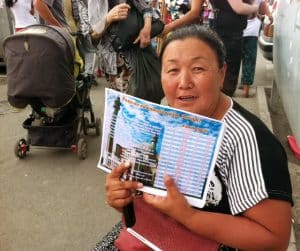
When it comes to the “rules” of Ramadan, Bishkek is diverse. No one person I talked to fasts the same way. Some take the “no drinking” rule literally, abstaining from any opportunity that might result in an intake of water, such brushing teeth, swimming, and taking showers and baths. They would only allow themselves to wash themselves before praying, and after using the toilet. (These Muslims would not swim at Lake Issyk Kul during Ramadan.) Others are okay with brushing teeth and taking showers, but not with immersing in a bathtub. Meanwhile, some Muslims will treat the iftar as a holiday, staying up all night and feasting until the sunrise azan at 3:30am. (And sometimes it happens that these people gain weight at the end of the 30 days.) Others treat the fast in a more sober fashion, eating a light iftar and sleeping early. (And sometimes it happens that they lose weight at the end of 30 days.)
Furthermore, Bishkek acknowledges this diversity and flexibility — within themselves and within their community. All my attempts to get a straight answer about the “rules” of Ramadan have always been met with a shrug of the shoulders: “It depends on the person, it depends on the family, it doesn’t matter if you do it this way, or that way…there’s no one way.” Again, my conversations are just a snapshot of the Muslim community here, but from what I’ve gathered — at least when it comes to fasting — attitudes here are open, tolerant, and accepting; here, one’s style of worship is a personal decision.
In short, Ramadan is not only an interesting peek into Kyrgyzstan’s kitchen tables, but into Kyrgyzstan’s hearts. If you are what you eat, Kyrgyzstan’s version of Islam would be kurut drinks. The rules for making the base (the big, unsalty yogurt ball) may be the same, but the sweet and savory combinations created from this base are richer, more flavorful, and more interesting than what it started out with.
You Might Also Like
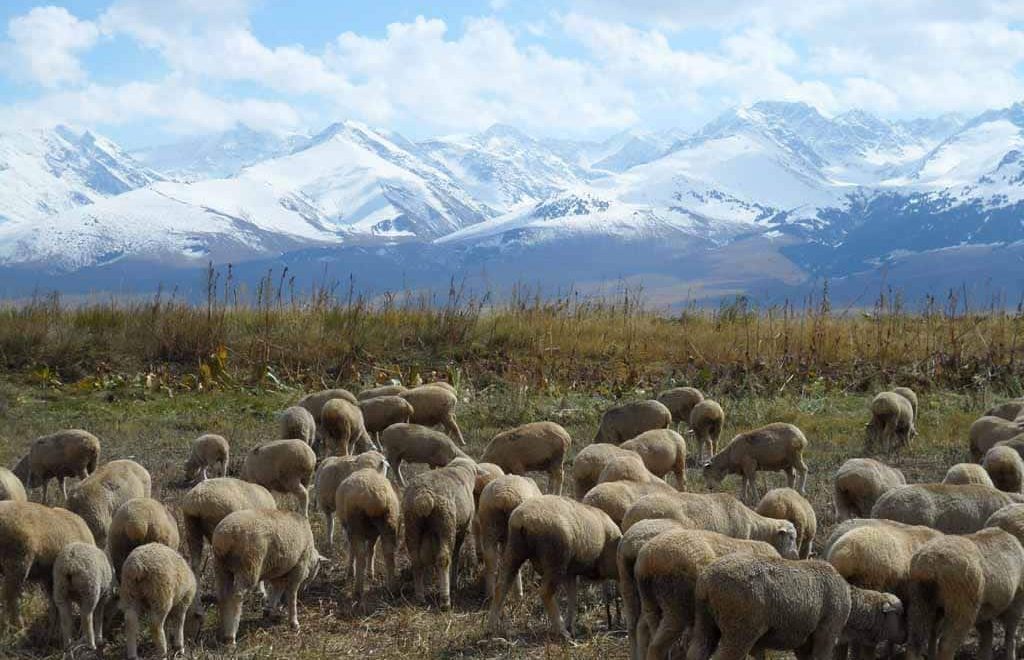
Sheep Guts Won’t Kill You: A Guide to Seeing the Kyrgyzstan that Most People Don’t
The Kyrgyz are a Turkic people with a rich identity that revolves around their nomadic heritage. Although they were forcibly settled by the Soviets, some have maintained or returned to nomadic traditions. Other strong elements of their culture include faith in Islam that is heavily informed by previous (or present) belief in Tengrism, Zoroastrianism, and […]
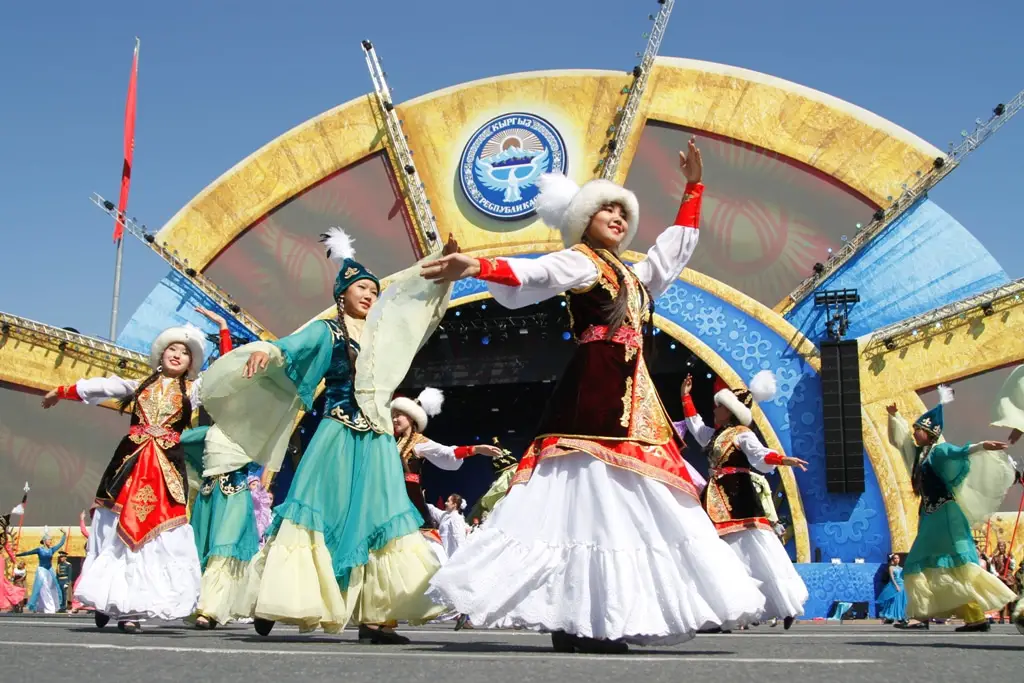
Kyrgyz Holidays 2026: A Complete Guide
Kyrgyz holidays include many inherited from the USSR (although most of those have changed their form at least slightly). Kyrgyz holidays also include many adopted from Russian culture. However, many holidays have now been added to the calendar to celebrate patriotism toward independent Kyrgyzstan and Kyrgyzstan’s long-held Muslim heritage. Thus, Soviet, national, Orthodox, Muslim, modern, […]
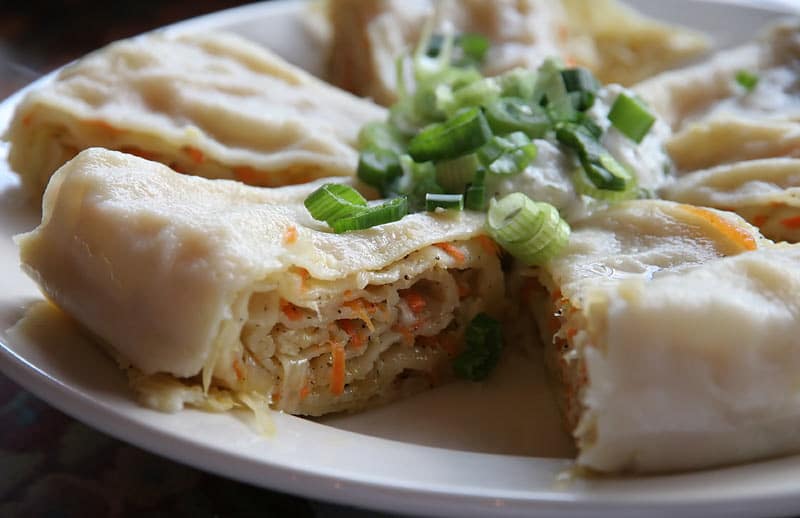
Oromo, Orama, Khanum: A Turkic Pumpkin Delight
For those obsessed with all things pumpkin — pumpkin pie, pumpkin ice-cream, pumpkin-spice lattes — oromo (оромо) is sure to please. Oromo is a rolled, layered, steamed pastry that comes with various fillings (pumpkin being common and our favorite). It evokes everything we love about pumpkin season back home in the States. This main dish […]
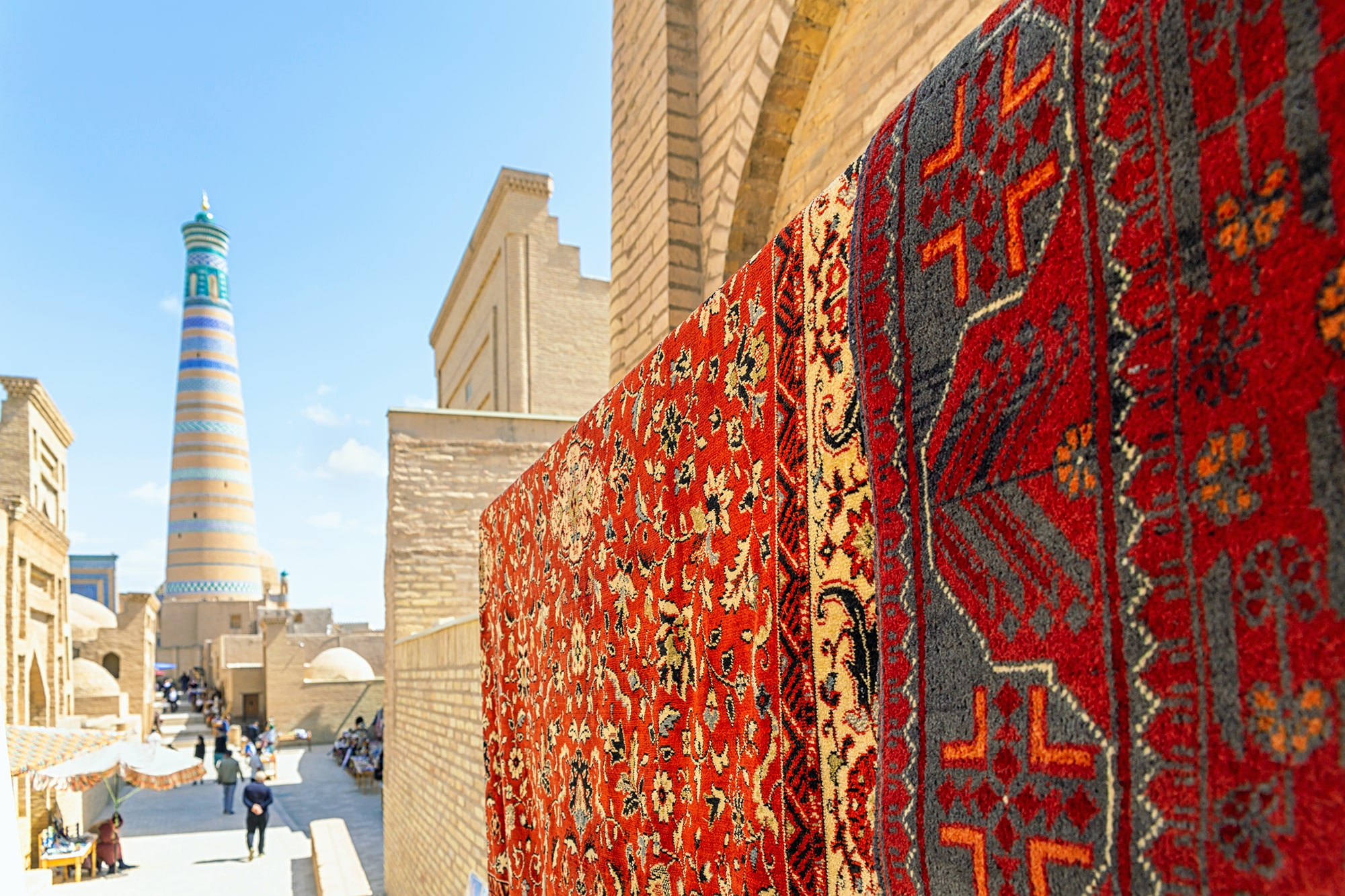
Knots of Culture: Central Asia’s Carpet Weaving Heritage
Central Asia’s rich tradition of carpet weaving reflects the region’s history, culture, and identity. From the ancient nomads of the Pazyryk Valley to the artisans of Kyrgyz yurts and the urban weavers of Samarkand, carpets have long served both practical and symbolic functions. Their materials, techniques, and motifs reflect centuries of interaction between nomadic and […]
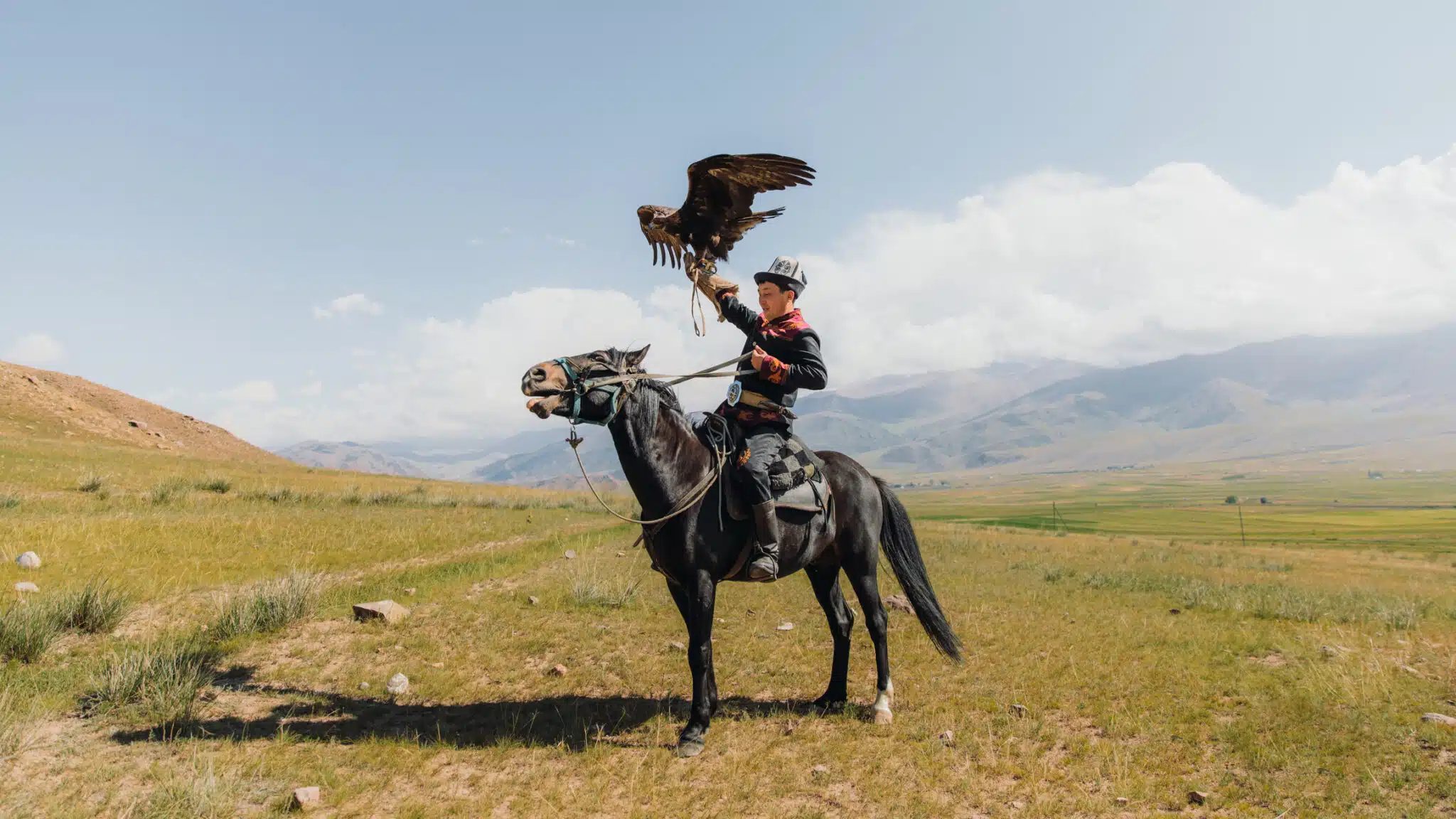
The Talking Kyrgyz Phrasebook
The Talking Phrasebook Series presents useful phrases and words in side-by-side translation and with audio files specifically geared to help students work on listening skills and pronunciation. Below, you will find several useful phrases and words. To the left is the English and to the above right is an English transliteration of the Kyrgyz translation. […]


